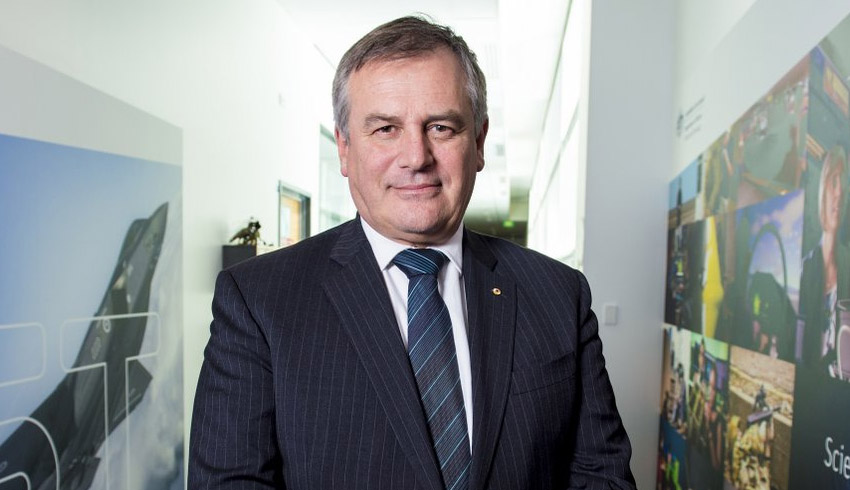Former Defence Science and Technology Chief Scientist Dr Alex Zelinsky has explained the central role DST plays in linking industry and defence to ensure that Australia maintains its leading-edge capabilities and technological edge over potential adversaries.
To continue reading the rest of this article, please log in.
Create free account to get unlimited news articles and more!
DST is a national leader in safeguarding Australia and its interests by providing expert and impartial advice and support for the conduct of operations, for the current force and for acquisition of future defence capabilities, enabling Australia’s defence and political decision-makers to make better decisions, thus informing the broader defence and national security debate.
For former DST Chief Scientist Dr Alex Zelinsky, seven years with the nation’s leading defence science and technology innovation organisation provided him with a unique understanding and insights into the role DST plays in supporting and enhancing Australia’s technological and capability edge, with a focus on enhancing commercialisation opportunities for Australia’s burgeoning defence industry.
“Australia has a pioneering culture, this makes us innovative and it means that as an organisation and a nation, Australia can add value to the design and build phases of projects, locally and globally, and that is largely done through science,” Dr Zelinsky told Defence Connect.
The 2016 Defence White Paper (DWP) served as an invaluable catalyst to future support this innate culture of innovation within the Australian identity and was, according to Dr Zelinsky, critical to developing and enhancing the role and capacity DST plays in supporting the research, development and introduction of capability across both defence and more broadly, Australia’s defence industry.
“The 2016 DWP is a first for Australia, what it does is identify the platform capability, geopolitical realities and, for the first time, the white paper outlines a real industry development plan. This is the first time this has happened in defence and we’re seeing the success of this now,” Dr Zelinsky said.
The DWP’s Integrated Investment Plan (IIP) and the $90 billion Naval Shipbuilding Plan outlined the government’s commitment to building a local defence industry, with a focus on shifting beyond the traditional approach to defence acquisition, which has been focused on buying large-scale, high-capability platforms from overseas.
Zelinsky reinforced the government’s focus on building a defence industry, maximising the opportunities for Australia’s broader industrial ecosystem for both Australian-based SMEs and the larger global primes who provide unique, niche and often complimentary capabilities to help develop and enhance Australia’s defence innovation and industry capabilities for domestic and export use.
“It is important, for SMEs in particular, to have an end goal of global export aspirations. Yes, the ADF should be the primary customer and through a collaboration, platform testing and integration can provide a powerful tool to perfect technology ahead of export. But to guarantee the long-term viability and success of Australia’s domestic defence capabilities, export has to be a key goal,” Dr Zelinsky said to Defence Connect.
This advice comes as part of DST’s key role as a “valued adviser” to government. However, this is not the only place DST plays the role of a valued adviser; Zelinsky was quick to identify the role DST had played in supporting and nurturing the development of Australia’s defence SMEs and the often world-leading technology they are responsible for developing.
Zelinsky was quick to identify success stories like leading-edge, radar developer CEA Technologies, which DST is currently collaborating with to develop the next-generation of the CEAFAR phased array radar technology and the joint DST/CSIRO start-up Silentium, which was started by former DST scientists and developed next-generation passive radar technologies.
“DST has tried to engage with all facets of Australia’s defence industry. This ranges from industry itself to academic experts, because it is important to realise that no one person knows everything and no one team knows everything. DST was very quick to identify this and engage with subject matter experts which have supported projects like the nation’s naval shipbuilding programs,” Dr Zelinsky explained.
DST Group provides value to Australia’s defence and national security through its capacity to reduce and mitigate strategic and operational risks and to create and maintain a capability edge.
At the strategic level, DST reduces risk in Defence’s core business – defence operations, intelligence, capability development and integration. It does this by providing specialist advice and innovative technology solutions that are grounded in research and are independent of commercial or non-government research interests.
The full podcast interview with Dr Alex Zelinsky AO, former Chief Scientist, Defence Science and Technology, will be available shortly.

 Login
Login







